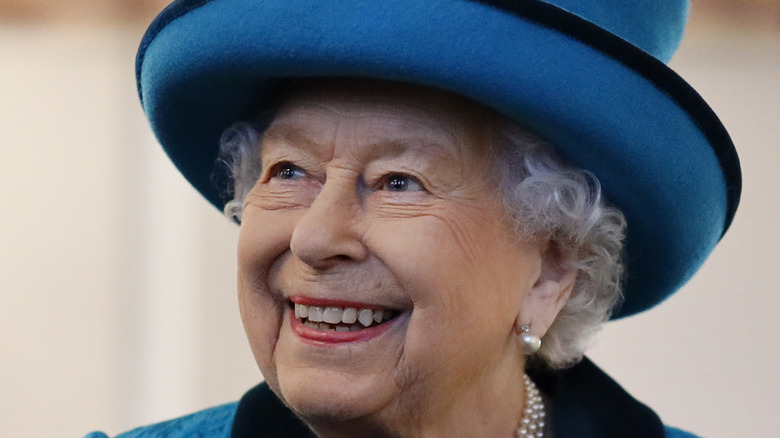What Is The Royal Protocol When The Queen Is Incapacitated?
Illness plagues all without prejudice. As such, even royal kings and queens are subject to the prospect of becoming seriously ill. This matter has raised questions and eyebrows recently ever since 73-year-old Prince Charles was officially diagnosed with a case of COVID-19, mere days after his mother, Queen Elizabeth II last saw him, and the queen has now developed the virus as well (via The Independent). The monarch, who is currently 95 years of age, could be declared "incapacitated," a term that renders her incapable of performing royal tasks due to infirmity of body, mind, or both (via Financial Review).
Notedly, the term "incapacitated" as it relates to the royal family is not only reserved for illness. Through the Regency Act of 1937, a member of the monarch can also be deemed incapacitated if they are missing, have become a prisoner, or have suffered an event that might render them otherwise incapable of carrying out the royal duties (via Express). Fortunately, there is a protocol in place for such an event.
One regent or two counselors of state act on behalf of the monarch
In the event that three or more prominent members of the monarchy deem a queen incapacitated, regents are tasked with acting on the queen's behalf. ABC reports that as per current legislation, the regent position is usually passed down to the person next in line for the throne. In extenuating circumstances, it can also be assumed by two or more counselors of state. This means that if Queen Elizabeth were to be deemed incapacitated, a great deal of her power and authority would ideally be passed down to Prince Charles.
The Cambridge Law Journal reports that royal incapacity, while unfavorable, is necessary in order for a monarch-driven government to function seamlessly in the face of human experiences like physical and mental illness, absence, and war. However, the current regulations do not leave much room for an event where multiple members of the royal family are incapacitated at the same time. Adding to the problematic nature of this concept, the regent or counselors tasked to take over the queen's duties would have to do so with limited power (via Royal Central). While the acting regent is permitted to carry out many government activities, they are not able to interfere with matters of the Commonwealth, nor can they appoint a new Prime Minister or create peerages (honorary titles) without permission from the queen.

